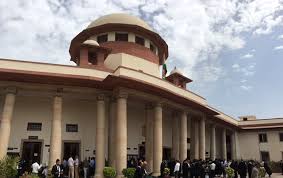Vide which the present Appellants, two in number, namely, (i) Sajeev (Accused No. 10) and (ii) Roy (Accused No.11) were convicted under Sections 302, 307 and 326 read with Section 120B of the Indian Penal Code (hereinafter ‘IPC’), Section 55(a), (h), (i) and Section 57 (A) (1) (ii) of the Abkari Act. They were awarded imprisonment for life for the offence under Section 302 and Section 57(A)(1)(ii), along with other sentences, ordered to run concurrently. (Para 1)
The incident in question relates to alcohol poisoning, resulting in the death of 7 innocent people, blindness in 11 people, and more than 40 people sustaining injuries. (Para 2)
The question which arises for consideration before this Court is whether the conviction and sentence imposed by the Trial Court and High Court on A10 and A11 are sustainable in law or not. (Para 7)
Assuming hypothetically, these convicts can be said to have supplied spirit, which is ethanol, as an independent business transaction. Even then, the factum of mixing and illegally selling the end product is not attributable to them, more so, in the absence of any element of conspiracy established beyond a reasonable doubt; hence, there is no question of conviction under the penal laws of the land. (Para 11)
In so far as Section 57(1)(a) of the Abkari Act is concerned, it was submitted the same is not applicable, for they have neither sold nor mixed the banned product. (Para 12)
Undisputedly, the cause of death of the deceased is poisoning caused by methyl alcohol. So also the persons suffering injuries on their body parts as a result of such consumption. (Para 16)
Therefore, it is entirely clear that the transactions reflected in the register of RR distributors (Ex.P6) were fictitious and the record prepared was only to show sales ostensibly to genuine customers, as per the process of law. The natural corally, thereto, being that A11, through his firm purchased Biosole but failed to provide any valid source to whom it was supplied or where it was used, which fact he failed to rebut. (Para 30)
Applying these principles to the case at hand, as discussed above, it is established that (a) A10 and A11 were known to A1; (b) A10 and A11 visited the residence of A1 on 05.04.2003, in the presence of other accused persons; (c) Methyl alcohol was supplied to and stored at the residence of A1, with the knowledge that the substance being sold was harmful; (d) A11 was running the affairs of the firm RR distributors which procured methyl alcohol at the first instance and fabricated record of its sale to different entities; (e) There is no dispute about the causation of deaths and injuries. Hence, the argument on behalf of the present appellants that they did not know A1 and were nowhere connected with the present crime is untenable and cannot be accepted. Therefore, the prosecution has succeeded in establishing the offence of criminal conspiracy of A10 and A11 with A1 (conviction of whom stands affirmed). (Para 37)
It has been established that the methyl alcohol was first purchased by A11, then shown to be sold to different entities, however, it was provided to A1. These accused persons have been established to be in conspiracy for common objectives throughout. Therefore, the conviction of A10 and A11 has to be upheld under Section 55(a)(h) and (i) of the Abkari Act. (Para 48)
There can be no doubt left about the involvement of the accused persons before us, in the sale and mixing of methyl alcohol with spirit as part of the conspiracy, resulting in deaths and injuries to many innocent persons. The conviction of A10 and A11 under Sections 302, 307, 326 and 120B IPC and 57(A)(1)(ii) of the Abkari Act has to be upheld. (Para 49)
SUPREME COURT OF INDIA
2023 STPL(Web) 419 SC
[2023 INSC 998]
Sajeev Vs. State Of Kerala
Criminal Appeal Nos. 1134 of 2011 & 567 of 2015-Decided on 9-11-2023
https://stpllaw.in/wp-content/uploads/2023/11/2023-STPLWeb-419-SC.pdf







